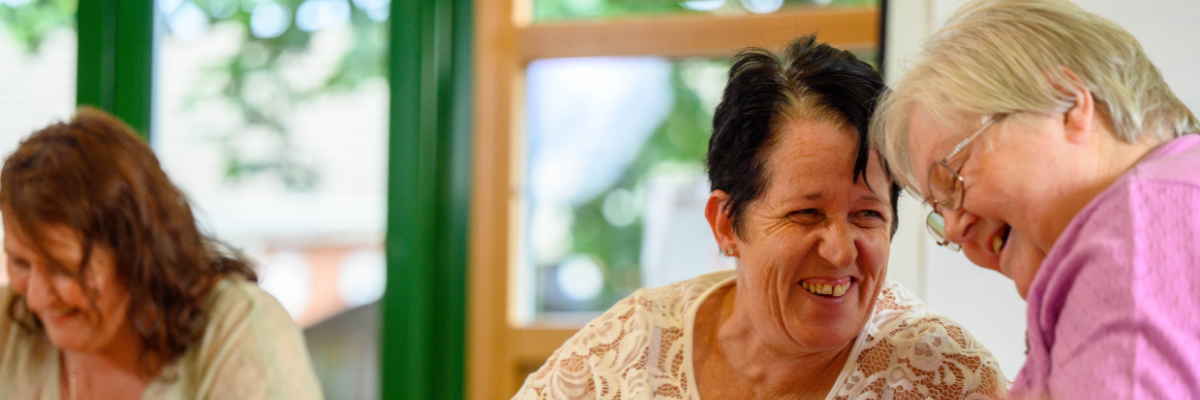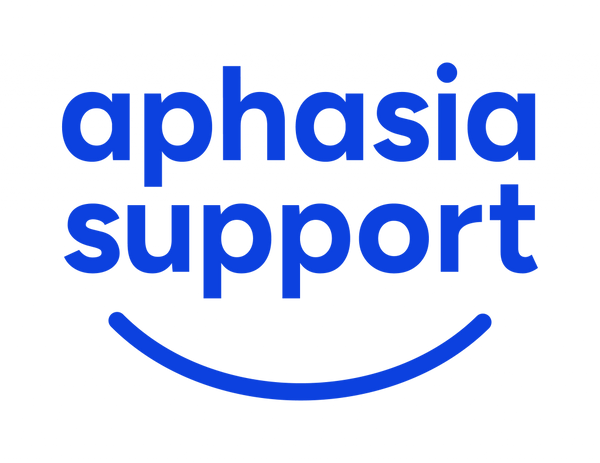
Communicate with Confidence
Creating a world where every person with aphasia has access to support.
Aphasia Support is a registered charity, founded in Yorkshire. Our mission is to improve the wellbeing of people with aphasia and their carers by providing tailored speech and language therapy and long-term support.
We strive to enhance the quality of life for people with aphasia – helping them to regain control, confidence and independence.
Our programme of support includes:
- 1:1 computer therapy focus
- 1:1 supported conversation
- Aphasia Cafe group sessions
We provide our services free of charge and rely on the kindness and generosity of our community. Over the past year, our charity has helped 205 people with aphasia to communicate with confidence.
News & Resources
-

Tribute to Graham Johnson
We remember Graham Johnson, an inspirational founding member of Aphasia Support, whose vision, compassion and leadership helped transform the lives of people with aphasia and their families.
Tribute to Graham Johnson
We remember Graham Johnson, an inspirational founding member of Aphasia Support, whose vision, compassion and leadership helped transform the lives of people with aphasia and their families.
Read More -

Aphasia Support Comes to Preston
Preston, say hello to your new Aphasia Cafe! Starting this January at Deepdale Football Stadium, join local residents with aphasia and their families to receive long-term support.
Aphasia Support Comes to Preston
Preston, say hello to your new Aphasia Cafe! Starting this January at Deepdale Football Stadium, join local residents with aphasia and their families to receive long-term support.
Read More -

Supporting People with Aphasia at Christmas
Christmas can be a joyful and heart-warming time, but it can also be overwhelming for people living with aphasia. Read our top tips.
Supporting People with Aphasia at Christmas
Christmas can be a joyful and heart-warming time, but it can also be overwhelming for people living with aphasia. Read our top tips.
Read More
Hear from our clients
-

Jo's Story
In this video, Jo shares how attending the Doncaster Aphasia Café helped her grow in confidence and ability, forming treasured friendships along the way.
Jo's Story
In this video, Jo shares how attending the Doncaster Aphasia Café helped her grow in confidence and ability, forming treasured friendships along the way.
Read More -

Ike's Story
Press play to hear from Ike who shares how Aphasia Support’s iPad therapy helped him regain his ability to speak and write, bringing hope and independence.
Ike's Story
Press play to hear from Ike who shares how Aphasia Support’s iPad therapy helped him regain his ability to speak and write, bringing hope and independence.
Read More -

Steve & Breda's Story
In this video, you'll meet Steve and Breda who openly share how aphasia affected their family, and how much it means to have a support network that truly understands.
Steve & Breda's Story
In this video, you'll meet Steve and Breda who openly share how aphasia affected their family, and how much it means to have a support network that truly understands.
Read More
-

Jay's Story
Meet Jay, a HGV driver and artist. After a stroke, Aphasia Support helped him regain confidence, independence, and connect with others.
Jay's Story
Meet Jay, a HGV driver and artist. After a stroke, Aphasia Support helped him regain confidence, independence, and connect with others.
Read More -

Estelle's Story
With 1:1 support, Estelle found hope, regained her confidence, and rebuilt her communication skills after a life-changing stroke.
Estelle's Story
With 1:1 support, Estelle found hope, regained her confidence, and rebuilt her communication skills after a life-changing stroke.
Read More -

Michael & Susan
2016 marked the beginning of a long and challenging journey for Michael his wife, and Susan.
Michael & Susan
2016 marked the beginning of a long and challenging journey for Michael his wife, and Susan.
Read More
Volunteer with us
-

Aphasia Cafe Volunteer
As an Aphasia Café Volunteer, you’ll play a key part in creating a warm and welcoming space for people with aphasia and their loved ones.
Aphasia Cafe Volunteer
As an Aphasia Café Volunteer, you’ll play a key part in creating a warm and welcoming space for people with aphasia and their loved ones.
Read More -

Speech Support Volunteer
As a Speech Support Volunteer, you’ll help to provide personalised 1:1 speech and language therapy in the comfort of someone's home.
Speech Support Volunteer
As a Speech Support Volunteer, you’ll help to provide personalised 1:1 speech and language therapy in the comfort of someone's home.
Read More
Find a Group
We currently host Aphasia Cafe group sessions in Yorkshire, Blackburn and Nottingham.
Enter in your postcode to find your local group, or call us on 0300 102 3500.













